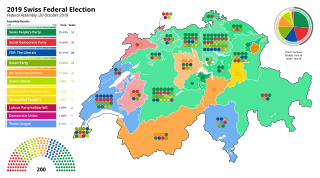
Friedrich Traugott Wahlen was a Swiss agronomist and politician.
Maria is a feminine given name. It is given in many languages influenced by Christianity.
Berger is a surname in both German and French, although there is no etymological connection between the names in the two languages. The French surname is an occupational name for a shepherd, from Old French bergier. The German surname derives from the word Berg, the word for "mountain" or "hill", and means "a resident on a mountain or hill", or someone from a toponym Berg, derived from the same. The pronunciation of the English name may sometimes be BUR-jər following the French phonetics French pronunciation:[bɛʁ.ʒe]. Notable people with this surname include:
Balthazar, Balthasar, Baltasar, or Baltazar may refer to:
Petri is a surname derived from Latin Petrus, and may refer to:
Carl is a North Germanic male name meaning "free man". The name originates in Old Norse.
Hoch or Höch is a surname. Notable people with the surname include:
Lena is a female given name, usually meaning “light”, “bright” and “shining”. Lena is popular in Arabic, Hindi, Russian, Swedish, French, Finnish, and was the most popular name for girls born in Poland in 2013.
Gunilla Wahlén is a Swedish Left Party politician. She was a member of the Riksdag from 1998 to 2010.
Dagmar is a Scandinavian given name. It is usually female. The name derives from the Old Norse name (Dagmær), dagr meaning "day", and mær meaning "daughter", "mother" and "maiden." Outside of Scandinavia, Dagmar is also used in the Austria, the Czech Republic, Estonia, Germany, the Netherlands, Poland (Dagmara), Slovakia and Switzerland.
Racism has been a recurring part of the history of Europe.
Gunilla is a Swedish female name, derived from Gunhild. It was among the top feminine names in the Scandinavian countries in the 1940s.
Dorothea, also spelt Dorothee (German), Dorothée (French), and Dorotea, is a female given name from Greek Δωροθέα (Dōrothéa) meaning "god's gift". In English it is more commonly spelt Dorothy.
Petrini is an Italian surname. Notable people with the surname include:
Küng is a surname of German origin. Notable people with the surname include:

Federal elections were held in Switzerland on 20 October 2019 to elect all members of both houses of the Federal Assembly. This was followed by the 2019 election to the Swiss Federal Council, the federal executive, by the United Federal Assembly.
Events from the year 1899 in Switzerland.

Erhard Grundl is a German politician of the Alliance 90/The Greens who has been serving as a member of the Bundestag from the state of Bavaria since 2017.

Marie Lilienberg and Maria Wahlen were a pair of Swedish tourists who were murdered by an unknown assailant while hitchhiking from Northern California to Los Angeles during July 1983. The case attracted significant media attention in the United States in the summer of 1983, before going cold for several years. It gained renewed interest in September 1991, following an anonymous phone call to the Swedish consulate in San Diego, which implicated a Canadian man named Loren in the murders. The anonymous phone call led to the case being featured in an April 1992 episode of Unsolved Mysteries. Loren and the anonymous caller were later identified by police, with the former never being charged for the murders. It is suspected that Loren may have been convicted serial killer Loren Herzog, although this has not been officially confirmed.
Events in the year 1985 in Switzerland.
This page is based on this
Wikipedia article Text is available under the
CC BY-SA 4.0 license; additional terms may apply.
Images, videos and audio are available under their respective licenses.



